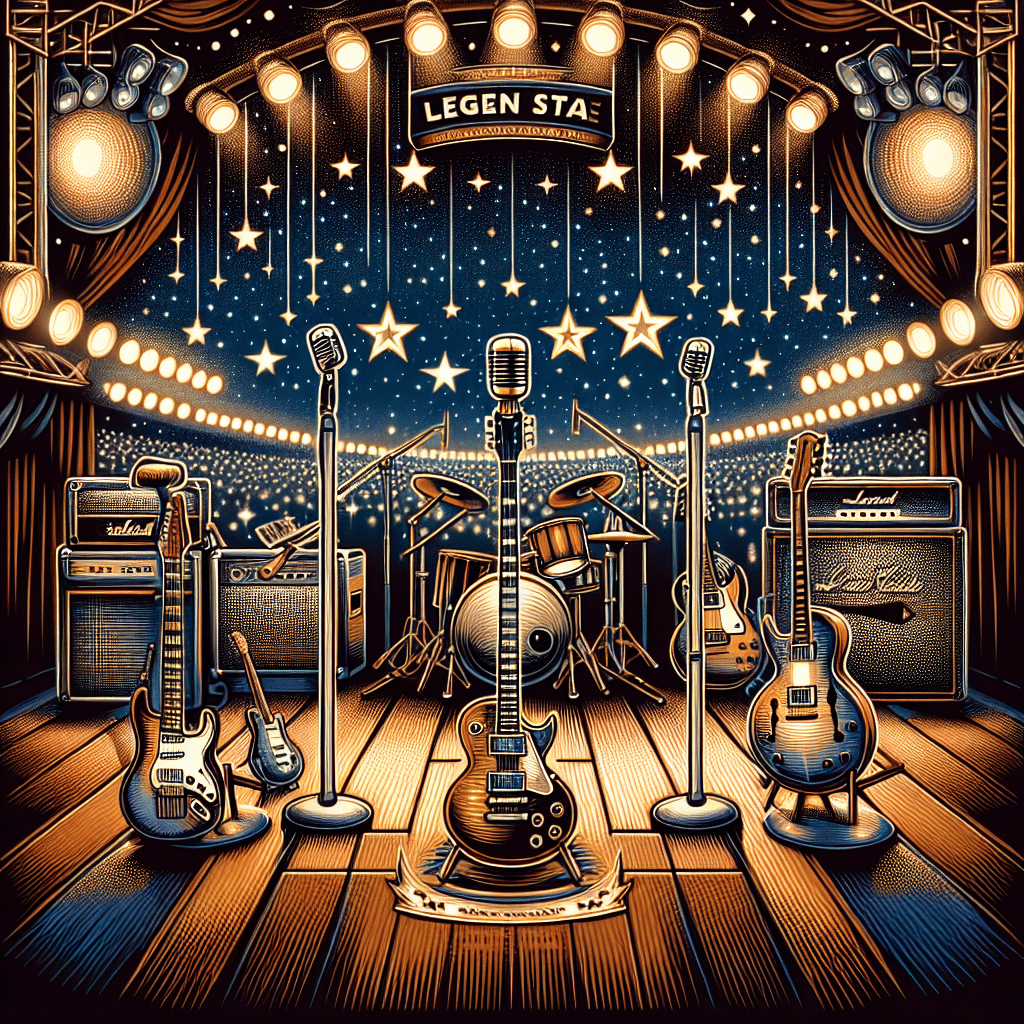Legends of the Stage: How Classic Rock Bands Shaped Music History

Classic rock is more than just a genre; it's a cultural seismic shift that influenced generations and redefined musical artistry. With their unforgettable melodies, powerful anthems, and timeless appeal, classic rock bands have established themselves as legends in the annals of music history. From the Beatles to Led Zeppelin, bands that emerged in the late 1960s and 1970s laid the groundwork for modern music, built global fanbases, and transformed social movements. This article explores how these bands shaped music history, their cultural impact, and why their legacies continue to resonate today.
The Genesis of Classic Rock
The late 1960s heralded a revolutionary period in music as artists began exploring new sounds that deviated from traditional rock 'n' roll. This era saw the fusion of blues, folk, and psychedelic sounds, which laid the foundation for what would be classified as classic rock. Key figures from this period include The Beatles, whose experimental approach changed the landscape of songwriting and recording, and The Rolling Stones, who epitomized the rebellious spirit of rock.
The Beatles: Innovators of Sound
See Also:![Shredding the Night: A Recap of [Band Name]’s Epic Performance](https://hits1000.com/wp-content/uploads/2024/10/1728843242-100x100.png) Shredding the Night: A Recap of [Band Name]’s Epic Performance
Shredding the Night: A Recap of [Band Name]’s Epic PerformanceThe Beatles (1960-1970) are widely considered the architects of modern music. With albums like "Sgt. Pepper's Lonely Hearts Club Band" and "The White Album," they pioneered the use of studio effects, unconventional song structures, and lyrical complexity. Their influence extended beyond music into fashion and social movements, shaping the counter-culture of the 1960s.
Led Zeppelin: Masters of Performance
Emerging from the British blues scene, Led Zeppelin (1968-1980) redefined the concept of live rock performances. Their blend of hard rock, folk, and medieval influences created a sonic landscape that was both innovative and timeless. Songs like "Stairway to Heaven" and "Whole Lotta Love" showcased their musicianship and theatrical flair, making concerts an extraordinary event.
The Rise of Rock Festivals
The late 60s and early 70s also witnessed the emergence of music festivals that defined the era. Legendary events like Woodstock (1969) and Isle of Wight Festival (1970) brought together diverse line-ups, showcasing the best in rock music and establishing a shared cultural experience. These festivals not only highlighted classic rock bands but also emphasized themes of unity, peace, and social change.
See Also:![Unplugged and Unforgettable: Our Take on [Album Name] by [Artist]](https://hits1000.com/wp-content/uploads/2024/10/1728847132-100x100.png) Unplugged and Unforgettable: Our Take on [Album Name] by [Artist]
Unplugged and Unforgettable: Our Take on [Album Name] by [Artist]Woodstock: A Cultural Milestone
Woodstock served as a platform for bands like Jimi Hendrix, Janis Joplin, and The Who, who delivered iconic performances that resonate even today. The festival symbolized the peak of the counter-culture movement, where music became a vehicle for social commentary and reflection on the tumultuous political landscape of the era.
Musical Innovation and Legacy
Classic rock bands didn’t just entertain; they also pushed the boundaries of music through relentless experimentation. The use of new technology and instruments would alter the sound of rock forever.
See Also: Revisiting the Rock Icons: A Deep Dive into the Legacy of Classic Rock Bands
Revisiting the Rock Icons: A Deep Dive into the Legacy of Classic Rock BandsThe Studio as an Instrument
Bands like Pink Floyd transformed the studio into an instrument itself. "The Dark Side of the Moon" (1973) is a prime example of this innovation, employing multitracking, sound effects, and synthesizers to create a cohesive narrative. Their experimental approach not only impacted rock but also set the stage for progressive rock bands and electronic music.
Influencing Subsequent Generations
The influence of classic rock bands extends far beyond their time. Elements of their sound can be heard in the music of numerous genres, including punk, grunge, and alternative rock. Bands like Nirvana and Radiohead drew inspiration from the complex songwriting and production techniques pioneered by their classic rock predecessors.
Cultural Impact
See Also: From Vinyl to Streaming: The Evolution of Classic Rock Favorites
From Vinyl to Streaming: The Evolution of Classic Rock FavoritesClassic rock serves as a narrative thread through the social fabric of its time, offering commentary on civil rights, war, and personal identity. Songs became anthems for change, rallying calls that sparked movements and offered a voice to the voiceless.
Rock and Revolution
The message in classic rock transcended borders and demographics. "Fortunate Son" by Creedence Clearwater Revival became an anti-Vietnam War anthem, while Bob Dylan’s "The Times They Are A-Changin’" resonated with the civil rights movement. These tracks solidified rock's place as a medium for social and political change, galvanizing the youth of the time.
Conclusion: The Enduring Importance of Classic Rock Bands
Classic rock bands shaped music history not just through their innovative sounds but also through their cultural influence and social commentary. They broke boundaries, inspired movements, and created timeless art that continues to resonate today. Their legacies serve as reminders of the power of music to unite, inspire, and provoke thought.
See Also: From Woodstock to Today: The Ongoing Impact of Classic Rock
From Woodstock to Today: The Ongoing Impact of Classic RockThe importance of legends of the stage is found in their ability to intermingle personal expression with collective experience, drawing listeners into shared narratives that transcend time and space. As new genres emerge and musical trends evolve, the contributions of classic rock bands remain ever-relevant, ensuring their place in the pantheon of music history.
FAQs
What defines classic rock?
Classic rock is typically defined as rock music produced during the late 1960s to the late 1970s. The genre is characterized by its heavy guitar-driven sound, melodic hooks, and often introspective lyrics.
See Also: Iconic Albums That Defined a Generation: Celebrating Classic Rock
Iconic Albums That Defined a Generation: Celebrating Classic RockWho are the most influential classic rock bands?
Some of the most influential classic rock bands include The Beatles, Led Zeppelin, The Rolling Stones, Pink Floyd, and The Who. Each of these bands has left an indelible mark on music history.
How did classic rock influence modern music?
Classic rock paved the way for modern music genres by introducing new sounds, production techniques, and lyrical depth. Bands from the ’80s onward, such as Nirvana, U2, and Radiohead, have drawn inspiration from classic rock, incorporating elements into their music.
What role did rock festivals play in the classic rock era?
See Also: Behind the Hits: The Untold Stories of Classic Rock Bands
Behind the Hits: The Untold Stories of Classic Rock BandsRock festivals like Woodstock and the Isle of Wight Festival were crucial in promoting the classic rock genre, showcasing top-tier talent and fostering a sense of community among fans, while also serving as platforms for political and social messages.
Why do classic rock bands continue to be relevant?
Classic rock bands remain relevant due to the universal themes explored in their music, as well as their ongoing influence on contemporary artists and genres. Their songs are often revisited in various media and continue to inspire new generations of musicians.
If you want to know other articles similar to Legends of the Stage: How Classic Rock Bands Shaped Music History you can visit the category Rock.
